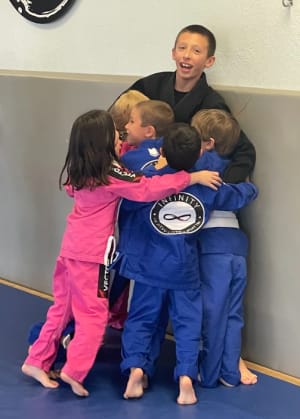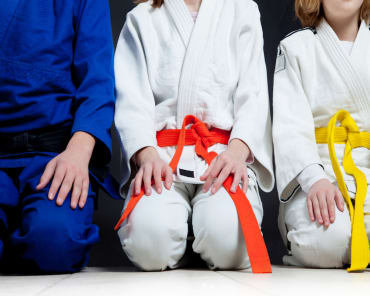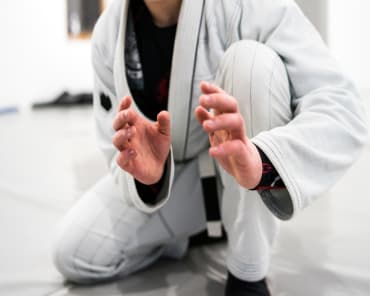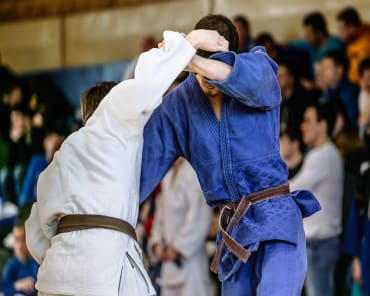
As parents, choosing the right extracurricular activity for your child can feel like a daunting task. With so many options available, it’s important to consider not just what your child will enjoy, but also what will benefit their overall development. Brazilian Jiu-Jitsu (BJJ) is a martial art that has gained popularity for its numerous physical and mental benefits, making it an excellent choice for children. If you’re contemplating enrolling your child in Jiu-Jitsu, here’s a comprehensive guide on what to know, the benefits of training, and how to ensure a positive experience for your young practitioner.
1. Understanding Brazilian Jiu-Jitsu
Before enrolling your child, it’s essential to understand what Brazilian Jiu-Jitsu is and how it differs from other martial arts. BJJ focuses on ground fighting and submission grappling, teaching practitioners to control opponents through leverage and technique rather than brute strength. This makes it particularly effective for self-defense, especially for smaller individuals, as it empowers them to defend themselves against larger opponents.
2. Physical Benefits of Jiu-Jitsu
Jiu-Jitsu offers a wide range of physical benefits that are important for children’s development:
Improved Fitness: Training in Jiu-Jitsu provides a full-body workout that enhances cardiovascular health, strength, flexibility, and coordination. These physical benefits contribute to overall fitness and a healthy lifestyle.
Motor Skills Development: The movements and techniques involved in BJJ help children refine their gross and fine motor skills. Rolling and sparring require coordination and balance, which can enhance your child’s physical abilities in other sports and activities.
Healthy Lifestyle Habits: Regular training fosters a sense of discipline and commitment. Children learn the importance of routine, perseverance, and goal-setting, which are valuable skills they can carry into other aspects of life.
3. Mental and Emotional Benefits
Beyond physical advantages, Jiu-Jitsu can significantly contribute to your child’s mental and emotional well-being:
Boosted Confidence: Mastering new techniques and overcoming challenges in training can significantly boost a child’s self-esteem. As they progress through the ranks and earn belts, they gain a sense of accomplishment and belief in their abilities.
Resilience and Grit: Jiu-Jitsu teaches children how to deal with setbacks and failures. They learn to embrace challenges, persevere through difficulties, and develop resilience—skills that are valuable in all areas of life.
Focus and Discipline: Training in Jiu-Jitsu requires concentration and discipline. Children learn to follow instructions, stay attentive during classes, and practice mindfulness—important skills that translate to improved focus in school and other activities.
4. Social Skills Development
Jiu-Jitsu also promotes social interaction and teamwork:
Building Friendships: In a BJJ class, children interact with peers, building friendships and a sense of community. Training together fosters camaraderie and helps children develop valuable social skills.
Respect and Sportsmanship: BJJ places a strong emphasis on respect for instructors and training partners. Children learn the importance of etiquette, humility, and good sportsmanship, understanding that everyone is on a unique journey.
5. Choosing the Right Academy
When selecting a Jiu-Jitsu academy for your child, consider the following factors:
Instructor Experience: Look for academies with qualified instructors who have experience teaching children. A knowledgeable instructor can create a positive learning environment that caters to different skill levels.
Class Structure: Inquire about the curriculum and how classes are structured. Classes should be engaging, age-appropriate, and focused on skill development while also incorporating fun and play.
Safety and Environment: Ensure the academy prioritizes safety by maintaining clean mats, using appropriate equipment, and enforcing safety rules. A welcoming environment fosters a positive experience for children and parents alike.
6. What to Expect in Class
As a parent, understanding what to expect in your child’s Jiu-Jitsu class can help ease any apprehensions:
Warm-Up: Classes typically begin with a warm-up to prepare the body for training. Expect exercises that promote flexibility, coordination, and cardiovascular fitness.
Technique Instruction: Instructors will teach specific techniques and movements, often broken down into manageable steps for children to grasp easily.
Drilling and Sparring: After learning techniques, children will practice them through drilling and, depending on their age and skill level, light sparring. This hands-on practice reinforces learning and builds confidence.
Cool Down and Reflection: Classes usually end with a cool-down period where children reflect on what they’ve learned and receive feedback from instructors. This helps reinforce the lessons and encourages self-assessment.
7. Preparing Your Child for Class
To ensure a smooth transition into Jiu-Jitsu, help your child prepare by:
Discussing Expectations: Talk to your child about what they can expect in class, including the structure, techniques, and the importance of listening to the instructor.
Fostering a Positive Attitude: Encourage your child to approach Jiu-Jitsu with an open mind and a willingness to learn. Remind them that everyone starts as a beginner and that progress takes time.
Providing the Right Gear: Invest in appropriate training gear, such as a gi (uniform) that fits well and is comfortable. Some academies may also require additional protective gear, so check with the instructor.
8. Supporting Your Child's Journey
As your child embarks on their Jiu-Jitsu journey, your support will play a crucial role in their success:
Attend Classes: Whenever possible, attend your child’s classes to show your support and engagement. Being present allows you to witness their progress and connect with the academy community.
Encourage Progress: Celebrate your child’s milestones, whether they’re mastering a new technique, earning stripes on their belt, or demonstrating improved confidence on the mats.
Open Communication: Keep lines of communication open with your child about their experiences. Encourage them to share their feelings, successes, and any challenges they face during training.
Conclusion
Enrolling your child in Brazilian Jiu-Jitsu can be a transformative experience that fosters physical, mental, and social development. With its emphasis on discipline, respect, and resilience, BJJ provides children with valuable life skills that extend beyond the mats. By understanding the benefits, choosing the right academy, and actively supporting your child’s journey, you can help them thrive in this exciting martial art and enjoy the many advantages it has to offer.






